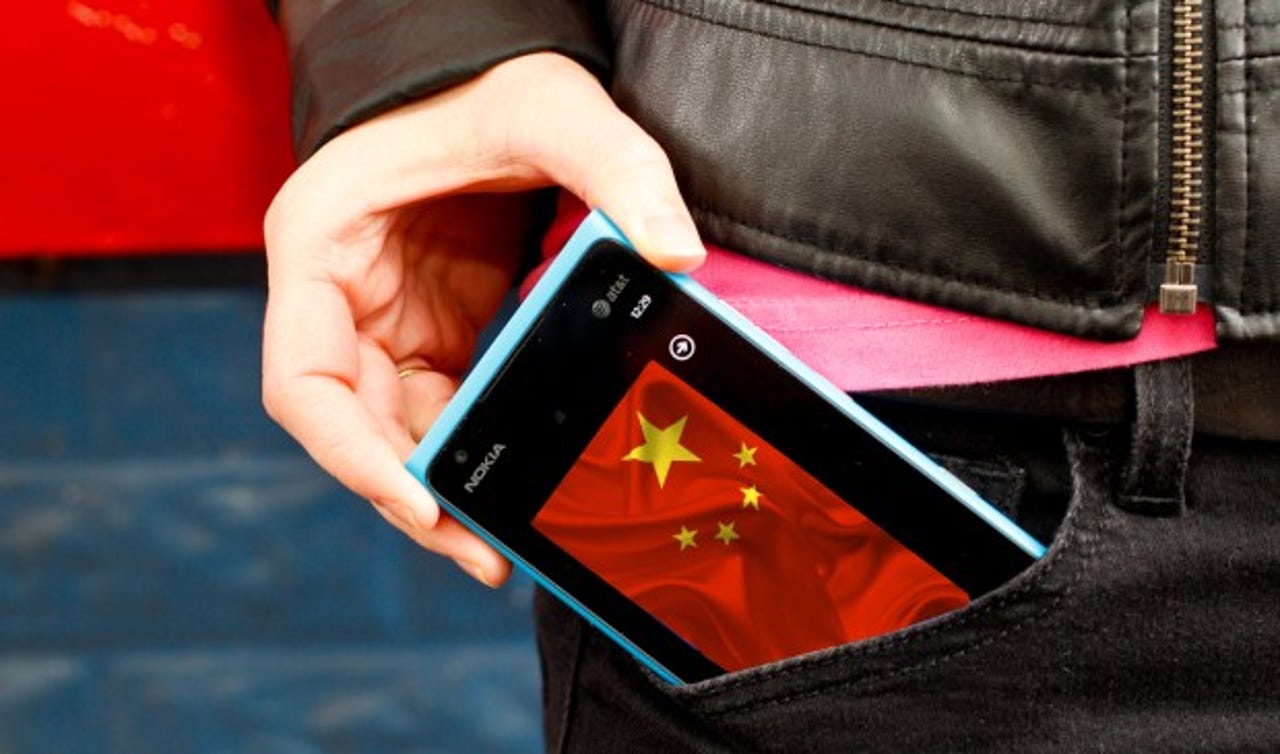Will the Nokia, Microsoft tag-team on China save Windows Phone?

China will be a key market for Nokia to claw back if it has any hopes of survival in the coming year, as the Finnish phone maker continues hemorrhaging cash each quarter, and battles in the face of a near-financial meltdown.
With so much invested in Windows Phone, which has only ever been able to scrape the barrel of the worldwide market share, both Nokia and Microsoft are tag-teaming to crack the Chinese market in order to save not only Nokia, but also the Windows Phone platform.

This week, Nokia struck a deal with China Mobile to offer the Windows Phone 8-powered Lumia 920T in the country. China Mobile has more than 703 million subscribers, taking around 53 percent of the country's 1.34 billion-strong population.
Meanwhile, Microsoft has reportedly signed an alliance with China Unicom to bring its Windows Phone platform to a series of more innovative smartphones to the Chinese market, reports the China Daily (via TechCrunch). The carrier has around 70 million subscribers, or around 10 percent of China Mobile's subscriber base. HTC, Samsung, Qualcomm and Intel are also part of the alliance in order to boost the Windows Phone platform's growth in the region.
The two deals are separate, and Microsoft's push into China with the Windows Phone platform does not benefit Nokia, while Nokia's more plucky push into a much larger segment of the Chinese market will ultimately help both Nokia and Microsoft.
This may well be what Microsoft has been pushing for. Instead of ditching its "special relationship" with Nokia, or developing its own branded smartphone -- recent rumors have suggested Microsoft will build a 'Surface phone' -- the software giant is instead pushing its platform brand (rather than the Lumia smartphone series) to an mostly untapped yet burgeoning market.
Nokia's push to get its Lumia range of smartphones with China Mobile, the country's largest network, comes as little surprise considering Nokia's Q2 net sales in China dipped by 6 percent, and then by a further 49 percent in Q3. Year-over-year, that's a 78 percent drop in sales, and Nokia is rightfully feeling the pinch.
It's a worrying time for Nokia. The Windows Phone platform is a strong contender for the December holiday season. It's received rave reviews, it's a capable platform, and those who bought one seem have fallen head over heels with the software and hardware combos.
The tricky part is getting consumers through the door and convincing them that it's the right device for them.
While Apple is taking on North America and Europe first, with China set in its sights, and Android phones are universally trending worldwide, the other phone makers outside the top duopoly are fighting for the Asian markets in a bid to claw back lost revenue from their rivals who have the developed markets covered.
China is a growing market for smartphones, tablets and post-PC devices on the whole, and not just because it has the world's largest population. There is no 4G connectivity in the country -- licenses are expected to be issued in 2013 -- and China's 3G network is still in development and carriers are still working on gaining faster speeds for end-consumers.
Nokia has also made its pitch to the emerging market, not just China. Other areas in Asia will be key for Nokia to crack -- such as Indonesia, with a population of 240 million, which Research in Motion has recently pitched its last-ditch pre-BlackBerry 10 salvation on -- will come under Nokia's scope to hit Asia with all guns blazing. The low-cost Lumia 620, priced at $249 and contract free, will launch first in Asia and then slowly rollout to Europe and the Middle East.
Microsoft's path is slightly different. Unlike Nokia, it doesn't have a company to save, but it has to save the platform it has invested so much time and money in. Nokia has not done a good job of it so far -- neither has any other Windows Phone manufacturer -- so the software giant is intervening in the only place the platform has a chance of succeeding.
Microsoft's Windows Phone platform holds only 3 percent of the U.S. and Chinese market respectively. In the U.S., the firm's market share is falling month on month as consumers sway towards iPhones and Android-based smartphones.
There are two things at play: Nokia is falling down, and so is the Windows Phone platform. The two are not directly connected, but Microsoft's invested interest in Nokia has not played out as well as the software giant had hoped.
Together, the strategy could work. While Nokia pursues the Lumia line-up with China's largest mobile carrier in a bid to save itself, it will also give a much-needed push to Microsoft's ailing platform. At the same time, Microsoft is allying with other partners -- Nokia's rivals, such as HTC and Samsung -- in a bid to separately push the platform to a wider audience.
For now, Nokia's push to get its flagship Lumia 920 -- running the latest Windows Phone 8 mobile operating system -- could be the firm's final push before it edges dangerously close to bankruptcy.